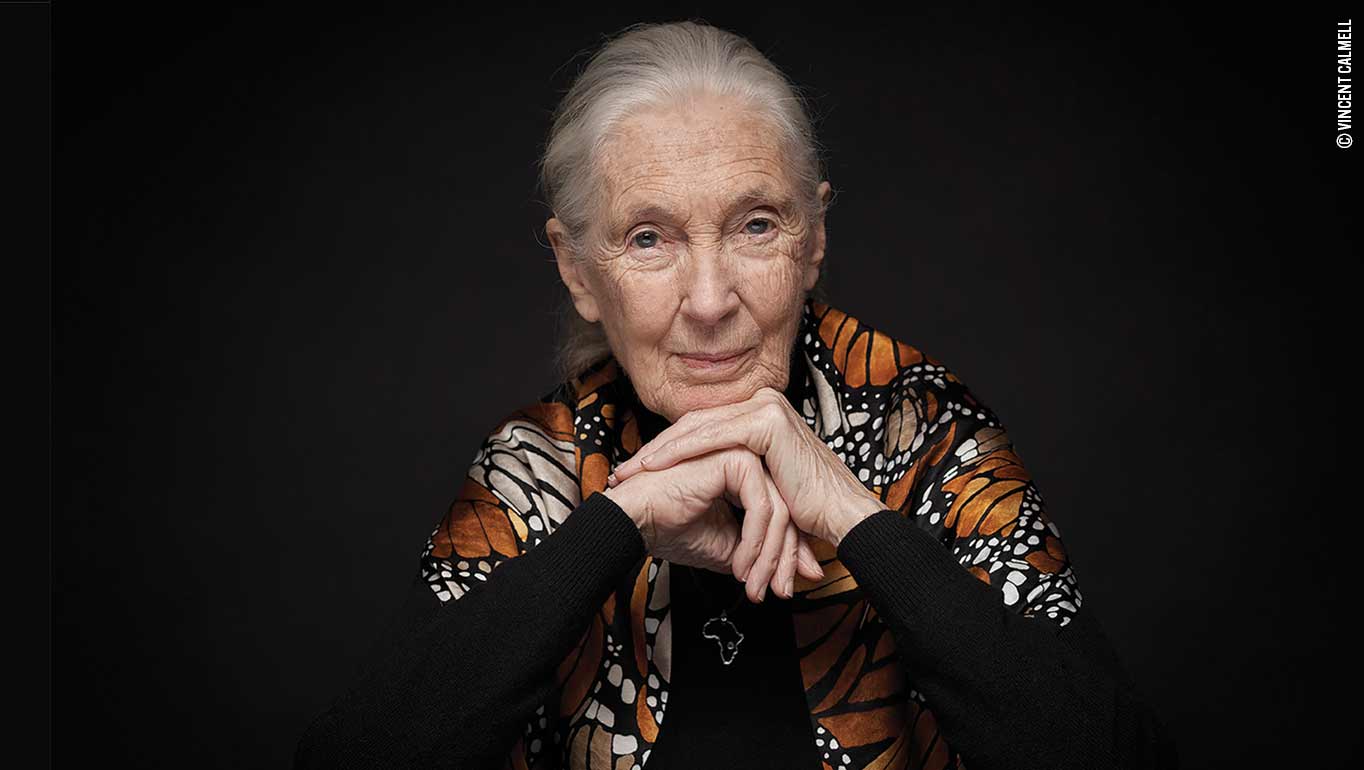Have we compromised the future of our young people?
We’ve not just compromised the future of our young people. We have been stealing it. We are still stealing it, but is it not too late to do something. We have a window of time. It is closed a lot since the 1990s, but it is still there. And if we get together, we can at least slow down Climate Change, slow down the loss of biodiversity, and heal some of the harm.
How do you feel about our renewable energy future?
I certainly feel it is desperately important to move away from fossil fuels into renewable energy. And it is perfectly possible if governments provide the right framework to all of these amazing innovations that scientists are now coming up with, we could be independent of fossil fuels and all the damage they are doing to the environment.
We only connect with tragedies when we feel them. How can we create empathy in people disconnected from reality, from nature? How do you think we can reach out to them?
We can reach others by telling stories. You have got to connect with all these people, whoever they are, why they are not interested in something. It’s no good arguing with them. If you start arguing with somebody in a high-up position who’s a big CEO, or head of a lab that is torturing animals for medical research, and you start arguing, pointing fingers, they just turn off. Either they don’t listen, or they are not really listening because they are formulating in their head a way to refute you, to argue with you, to get the better of you. But if you can reach their heart, then, I believe people need to change from within. And that is why so often, children are changing their parents.
Can taking action help young people deal with climate anxiety or depression?
When you take action and feel you’re doing your bit, you start to come out of this depression. Every day you live, you can make a difference. So what do you buy? Where does it come from? Did its production harm the environment? Was it cruel to animals like factory farming or the wildlife markets? Is it cheap because of unfair wages, child labor, or sweatshops?
So you can start buying ethically. However, if you are very poor, you can’t afford it, which is why alleviating poverty is so terribly important. But if you are not in absolute poverty, you can still make a choice.
If you don’t think the product has been created ethically, don’t buy it. So then you get this consumer pressure, which has changed big corporations. And also, you’ve got CEOs of some of these corporations who’ve had their hearts reached. So there is a lot of pressure, more and more people realize that they have a role to play in making this a better world, each and every one of us has a role to play, even if we don’t know what it is, but we can all still try.
We have become distant from nature as if it’s no longer part of us. We are sucked into a material society. What are your thoughts on this?
Well, I think that what’s happened, and you have said as such, is that we’ve been sucked into this materialistic society. We have lost contact with the natural world. I’m hoping that the silver lining of this terrible pandemic that’s caused so much suffering is that it’s like a wake-up call, because we brought this pandemic on ourselves by our absolute disrespect both of nature and of animals.
It’s become clear to many people that we need a new relationship with nature and animals because we are part of the natural world. We may think we are separate from it, and we can live without it, but we cannot.
Unlimited growth in a limited world?
We cannot expect to have unlimited economic development and only care for GDP on a planet with finite natural resources. In some places, they are being used up faster than nature can replenish them.
Dr. Jane Goodall, the icon?
This whole iconic thing. It still puzzles me because, quite honestly, inside myself, I am just me. I am the same me. I’m sitting in the house now where I grew up, behind me are some of the books I read as a child and the picture of the dog who taught me so much about animals, Rusty.
You mentioned that your mother had played a key role in your life. What can you share about her?
I have this wonderful mother who supported me. She gave me the right advice. If you meet with people you disagree with, listen to them, talk to them. Maybe they have got some points that you have never thought of, maybe it is you who is wrong, not them. And you know, she gave me all this kind of wise advice, a wonderful family, even this house where I grew up.
A tribute to my father is to have really good, strong genes. So, you know, I don’t get sick. So I can go all day without eating. It doesn’t bother me, and he was just the same.
I always admire your energy to travel 300 days non-stop (pre-pandemic). Would you like to share your secret with us?
The closer I get to the end, the more I have to do, and the less time I have to do it. So, you know, it is just sheer pigheadedness. My body is very kind to me, and I give thanks for that. I don’t take it for granted. I’m very grateful to the genes I was given and all the other things that are partly genetic and partly my upbringing and my wonderful family.



